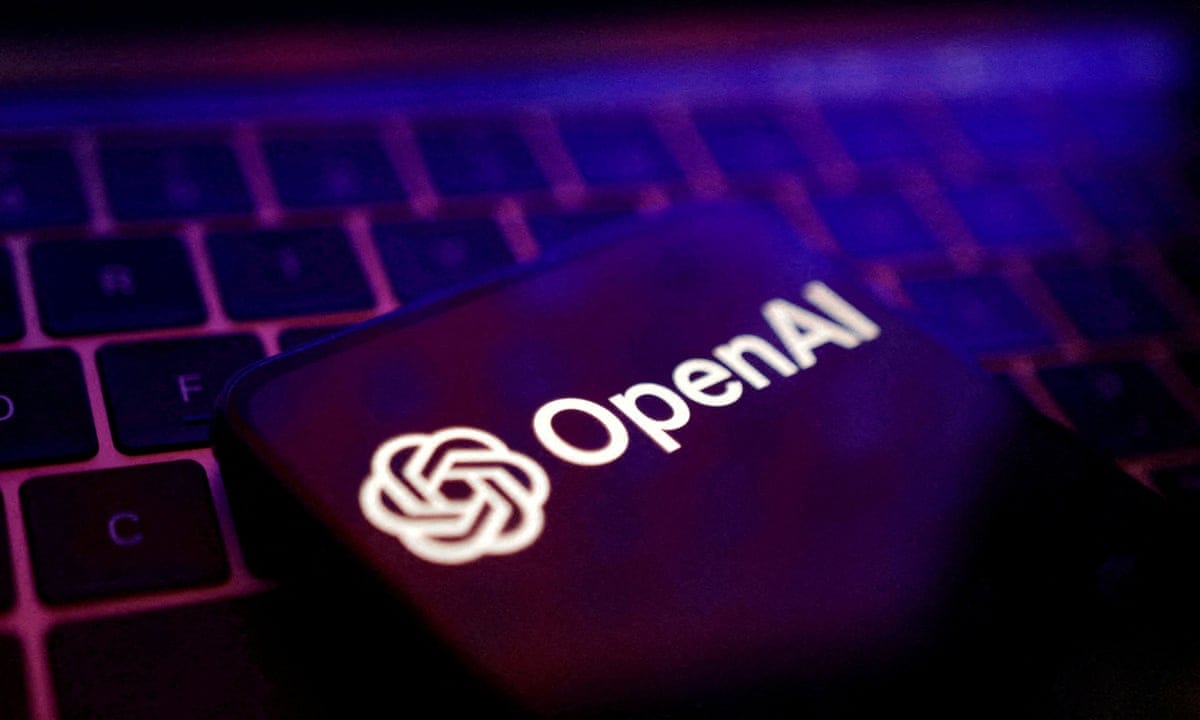OpenAI is currently exploring a new direction in web searching by incorporating generative artificial intelligence into their platform, which could potentially disrupt Google's longstanding dominance in the search market.
The company plans to initiate a trial phase with selected users and publishers before considering broader implementation of this innovation, as announced earlier this week.
OpenAI has introduced SearchGPT, an experimental feature that leverages their existing AI models, such as ChatGPT, in conjunction with sophisticated internet search capabilities. It is designed to engage users in a conversational manner and provide current information, complete with direct references to pertinent sources.
The initiative places OpenAI on the competitive landscape of major web search engines like Google and Bing, both backed by Microsoft's significant investment in the company.
Incorporating generative AI into the realm of internet searching has sparked a technological rivalry among leading tech firms. However, this approach is not without its concerns, including potential misinformation and copyright issues associated with AI-generated content.
"The process of finding relevant information on the web can be cumbersome, often requiring repeated attempts to achieve desired results," states OpenAI in a blog post introducing SearchGPT as an innovative approach to search functionality. "We believe that by enhancing our models' conversational abilities and integrating real-time web data, users will find what they need more swiftly and effortlessly."
The deployment of SearchGPT might prompt further opposition from publishers due to how the system references sources in its content, possibly leading to disagreements over OpenAI’s utilization of their materials.
Several reputable news organizations have recently engaged in legal proceedings against OpenAI concerning allegations of copyright violation stemming from claims that the company trained its AI models on published works without proper authorization or remuneration, essentially profiting off others' intellectual property.
Despite such accusations, OpenAI maintains that their use of copyrighted data in training applications like ChatGPT falls under "fair use," a concept they believe protects them from legal repercussions for creating new content through AI systems.
Similar challenges have arisen with other companies venturing into AI-assisted search technologies, leading to mixed responses from both users and publishers. Google's recent implementation of an AI feature called AI Overviews aims to provide summaries of web content without necessitating clicks on external websites—a move that has received criticism from the media community due to concerns over lost traffic and revenue for news outlets.
Perplexity, another emerging AI-driven search engine, has been reportedly creating results closely resembling text taken directly from news articles it sources, prompting legal actions from multiple publishers who have demanded cessation of such practices.
In response to these concerns, OpenAI states that they are collaborating with publishers in their SearchGPT venture and providing them choices regarding the presentation of their content within search results. The company also emphasizes its commitment to endorsing credible sources.
The press release from OpenAI includes positive remarks from industry leaders such as News Corp's CEO and Atlantic magazine's CEO, who have reportedly entered into beneficial agreements with the organization concerning AI-powered search capabilities—a sentiment echoed by many in anticipation of a future shaped by advanced technology.
Read next

Ryanair plane had only six minutes of fuel upon Manchester landing, records show
Flight Narrowly Avoids Disaster After Storm Diversion
An inquiry has been launched after a Ryanair flight, struggling against severe winds during storm Amy last week, landed at Manchester Airport with only six minutes’ worth of fuel remaining.
The aircraft had been transporting passengers from Pisa, Italy, to Prestwick, Scotland, on

"Qantas customer data for 5 million exposed as hackers release info post-ransom deadline"
Hackers Leak Personal Data of 5 Million Qantas Customers on Dark Web
A cybercriminal group has released personal records of 5 million Qantas customers on the dark web after the airline did not meet their ransom demand.
The breach is part of a larger global incident affecting over 40 companies,

Investors flee record-high UK stocks as EU set to hike steel tariffs
Investors Withdraw Record Sums from Equity Funds Amid High Market Valuations
Data reveals that investors in the UK have withdrawn an unprecedented amount of money from equity funds over the past three months, driven by concerns over soaring stock market valuations.
According to the latest figures from Calastone, the largest

